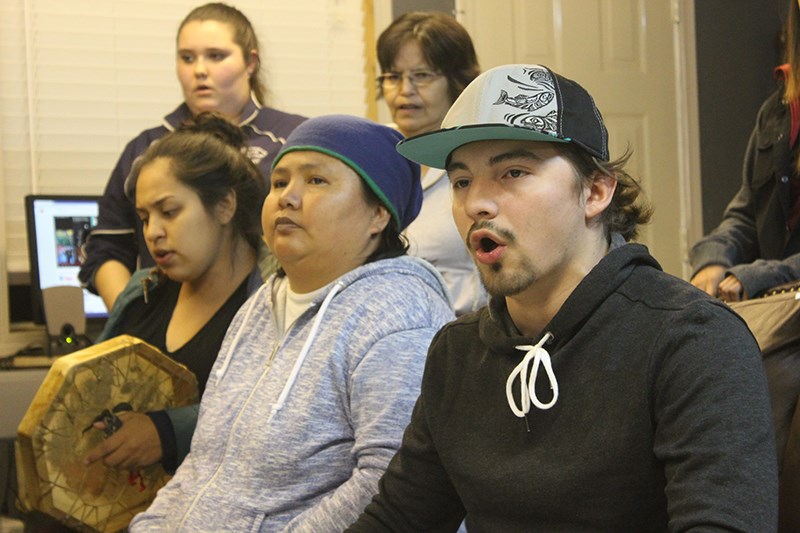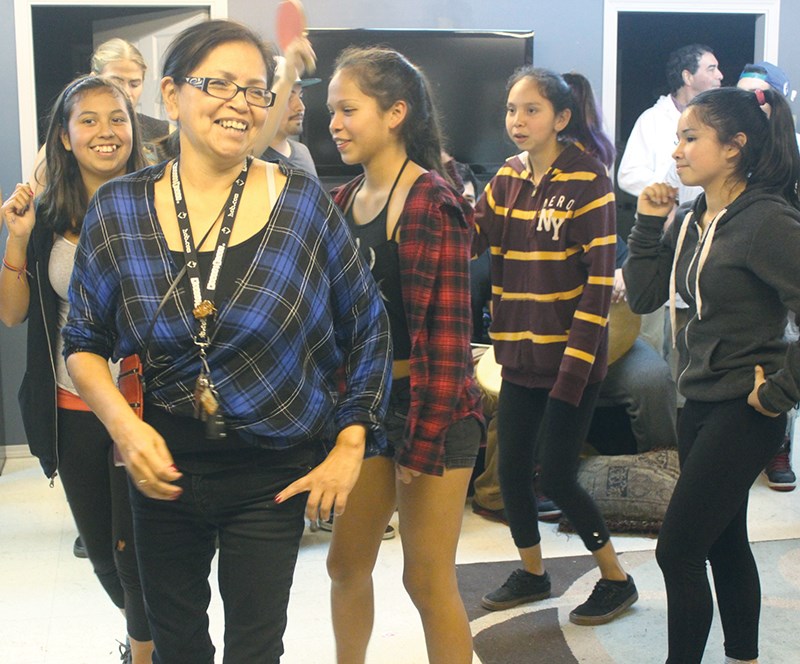It’s Friday night and teenagers are about to start a bloodless war known as slahal, a traditional game played among indigenous people from Alaska to California. More than 40 participants gather weekly at the Squamish Nation Youth Centre in Brackendale to sing, drum and play traditional games.
The summer social singing group was created when Mara Williams, recreation manager at Squamish Nation, enlisted the help of young cultural leaders Swo-wo Billy and Josh Watts to engage youth in a cultural revitalization project.
“Mara asked us to bring singing back into the valley,” says Billy, noting that there are younger Squamish Nation singing groups in North Vancouver but not in the Squamish Valley. Both areas have significant cultural differences that should be preserved, he says.
The youth trickle in at dinnertime to a meal – Greek salad and pasta – prepared by Watts, who would rather carve canoes than carouse. Apparently, he is the only one in the bunch who knows how to cook. A little food, some classic metal on Youtube, then it’s down to ancient games and songs.
The crowd gets rowdy as two captains divide the room into teams that will sing and taunt each other as they try to guess which opponent’s hand conceals the stripeless length of bone. Swo-wo Billy has a new set of bones to break in. “This is what we do on a Friday night,” he smiles. The group consists mostly of Squamish Nation (SN) youth ages 12 to 25 but welcomes anyone who wants to partake in cultural learning.
It is necessary to pass teachings on to youth to sustain the culture of Squamish Nation in the valley. The challenge for Billy and Watts is to make cultural learning interesting to youth who might have limited cultural knowledge or other ideas of what fun is. Watts says: “Being young ourselves sets an example for youth. Our culture is not all ceremony and seriousness.”
“I was fortunate enough to be brought up in the culture,” says Billy.
His first eight birthdays were traditional ceremonies, celebrated without the excess of sugar and inflatables that are usually standards at birthdays for the under-10 crowd. Billy and Watts, both now 20, are cultural enthusiasts who have been singing together for years. In their culture, the 12 traditional professions include singer, as well as others such as chief, medicine man and warrior.
The people of Squamish Nation make a distinction between language used in speech and language as it is used in song, where words are echoes of spirit. Billy notes: “You can’t just make up a song.” Songs are not created by the individual. They are received from returned ancestors and it is a sacred experience to be the recipient.
Swo-wo Billy has received only two songs: “It almost sounded like someone singing in the next valley.”
Watts provides cautionary advice on how to sing the songs of others. “Before you can sing you need to learn about the song you’re singing. Maybe you’re singing someone’s grandmother’s song that was put away when she passed away.”
Billy and Watts are seeing great success in the revitalization project and confirm the young people are ready to learn. The goal is not to teach technical aspects of singing but to challenge youth to return weekly and keep singing.
As the evening nears its end, Watts puts a hand over his neck and laughs: “My voice is gone.” It’s not time to stop singing yet as someone calls out: “Play us a song!” Billy and Watts pick up their drums and Watts responds to the request: “Whaddayawanna hear, gang?” Again, there is singing.




